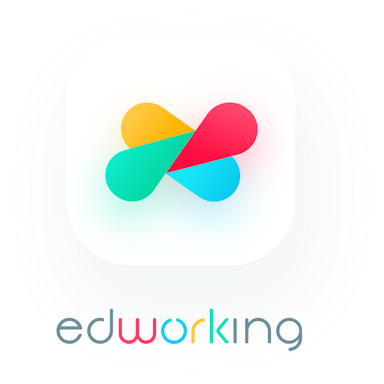In the fast-paced digital world, app development project management is crucial for success. Are you struggling to keep up with the demands of your team and clients? Don't worry – we've got your back! In this comprehensive guide, we'll walk you through the essential steps and best practices to master app development project management, ensuring a seamless experience from start to finish. And guess what? You might even find that a tool like Edworking can help you stay on top of everything!
 The Foundation: Setting Clear Goals and Objectives
The Foundation: Setting Clear Goals and Objectives
Identifying Project Goals
To kick things off, you need to set clear goals for your app development project. What are you trying to accomplish? Is it a brand-new app or an update to an existing one? Establishing your goals will help you create a roadmap for success. Here are some critical aspects to consider when defining your project goals:
- Target audience: Who will use your app? Identifying your target audience helps tailor the app's features and user experience to meet their needs.
- Desired features: What functionality does your app need? Outline the essential features to achieve your goals and provide value to users.
- Monetization strategy: How will your app generate revenue? Consider in-app purchases, advertising, or subscription models.
- Platform compatibility: Which platforms will your app support? Decide between iOS, Android, or both, considering your target audience's preferences and your app's technical requirements.
Defining Objectives
With your goals in place, it's time to turn them into actionable objectives. This is where the magic happens! Break down your goals into smaller, measurable tasks to ensure every team member knows their role. Use the SMART criteria (Specific, Measurable, Achievable, Relevant, Time-bound) to guide you in this process. By creating a clear timeline and assigning responsibilities, your team can work more efficiently towards a common goal.
 Organizing Your Team and Resources
Organizing Your Team and Resources
Assembling the Dream Team
An app development project is only as strong as the team behind it. Assemble a diverse group of experts, including developers, designers, testers, and project managers. Make sure each team member brings unique skills and expertise to the table – a perfect recipe for innovation! When building your team, consider the following roles:
- Project Manager: Coordinates resources, schedules, and communication to ensure the project stays on track.
- Developers: Write the code for your app, integrating the desired features and functionality.
- Designers: Create the user interface and user experience, making your app visually appealing and easy to use.
- Testers: Identify and resolve bugs, ensuring the app's performance and stability.
- Marketing: Develop and execute strategies to promote your app and reach your target audience.

Managing Resources Effectively
Juggling multiple resources can be challenging, but it's essential for success. Allocate time, budget, and tools wisely to ensure smooth sailing. Here are some tips for managing resources effectively:
- Create a detailed project timeline: Outline each task, assign deadlines, and track progress to keep everyone accountable.
- Set a realistic budget: Estimate costs for development, testing, marketing, and other expenses, and monitor spending to avoid surprises.
- Choose the right tools: Select software and platforms that streamline communication, collaboration, and task management for your team.
Speaking of tools, have you considered using Edworking? Its task management, file sharing, and real-time collaboration features might be just what you need to keep everything under control.
 Developing a Winning Strategy: Agile Methodologies
Developing a Winning Strategy: Agile Methodologies
The Benefits of Agile
Agile methodologies are game-changers for app development project management. They promote flexibility, collaboration, and continuous improvement, allowing you to pivot as needed. Some benefits of Agile include:
- Faster delivery times: Agile projects can adapt quickly to changing requirements, leading to a faster time-to-market.
- Improved customer satisfaction: Agile teams can respond to user feedback and incorporate changes throughout the project, ensuring a better end product.
- Enhanced team collaboration: Agile fosters a collaborative environment, promoting open communication and shared responsibility.
- Higher-quality products: Agile's iterative approach allows for continuous testing and improvement, leading to more polished and reliable apps.

Implementing Scrum
Scrum is a popular Agile framework that focuses on iterative progress and continuous feedback. Implementing Scrum can revolutionize your app development project management by breaking down the project into smaller, manageable sprints. Key Scrum elements include:
- Product backlog: A prioritized list of tasks and features to be completed in the project.
- Sprint planning: A meeting where the team selects tasks from the product backlog and commits to completing them during the next sprint.
- Daily stand-up meetings: Short, daily meetings where team members discuss their progress and any roadblocks.
- Sprint review and retrospective: Meetings held at the end of each sprint to review completed tasks and identify areas for improvement.
 Monitoring Progress and Ensuring Quality
Monitoring Progress and Ensuring Quality
Tracking Metrics
You can't manage what you can't measure, right? Monitoring key performance indicators (KPIs) is essential to ensure your app development project is on track. Some crucial KPIs to track include:
- Budget and resource utilization: Monitor spending and resource allocation to ensure you stay within budget and make the most of your team's expertise.
- Sprint velocity: Measure how many tasks your team completes during each sprint, helping you predict future progress and adjust plans as needed.
- Bug rates: Track the number and severity of software bugs to gauge the overall quality of your app.
- Customer feedback: Collect user feedback and monitor app ratings to identify areas for improvement and measure customer satisfaction.
Testing and Quality Assurance
No app is perfect from the get-go, but rigorous testing and quality assurance can help you get pretty close! Implement a testing strategy that includes unit, integration, system, and user acceptance testing to ensure your app meets user expectations and performs flawlessly. Don't forget to consider:
- Test automation: Automate repetitive testing tasks to save time and improve accuracy.
- Continuous integration: Integrate code changes regularly and run automated tests to catch issues early.
- Performance testing: Evaluate your app's speed, responsiveness, and stability under various conditions.
- Security testing: Identify and address potential vulnerabilities to protect user data and privacy.
 Mastering App Development Project Management
Mastering App Development Project Management
By following these best practices, you'll be well on your way to mastering app development project management! Keep in mind that every project is unique, so don't be afraid to adapt and learn as you go. And remember, a comprehensive tool like Edworking can help streamline your remote work management, offering task management, file sharing, and real-time collaboration – all in one platform. With the right strategy, team, and tools, you can successfully navigate the app development landscape and deliver exceptional products that delight your users. Good luck on your app development journey!







